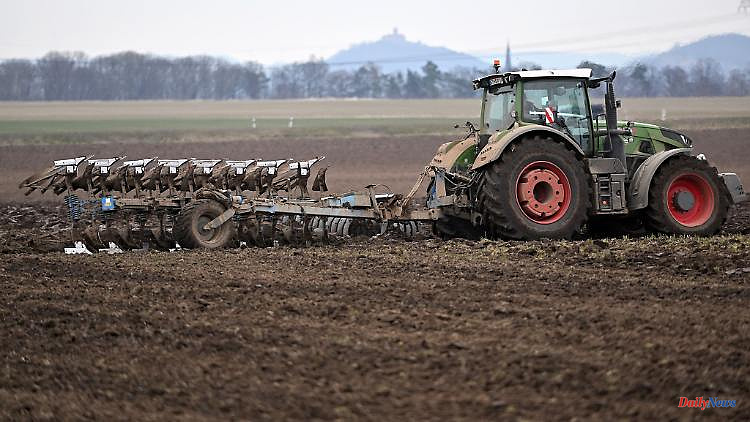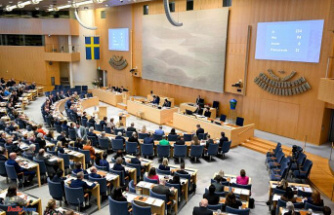Leasing instead of selling with priority for organic farms - this is how agricultural land that belongs to the federal government in East Germany is to be dealt with in the future. Is that good for Thuringia's agriculture?
Erfurt/Berlin (dpa/th) - Thuringia's Agriculture Minister Susanna Karawanskij hopes that the federal government's ban on sales of agricultural land can stem the price explosion in eastern Germany. "The privatization stop is the right step," said the left-wing politician at the German Press Agency in Erfurt. "The sell-off of public arable land in the eastern German states has been a strong price driver on the agricultural land market in recent years."
Karawanskij was reacting to the federal government's decision, after three decades of privatization, to only lease his remaining arable land in East Germany - primarily to organic farms. The minister criticized this priority - it would disadvantage conventional companies.
According to figures from the State Statistical Office, Thuringia's agricultural businesses have owned comparatively few areas, despite a slight upward trend in recent years. Only 24 percent of the agricultural land belongs to them, 76 percent is leased. In 2010, the share of leased areas was even 82 percent - only slightly lower than after reunification with a share of 88 percent.
Thuringia thus has the highest proportion of leases for agricultural land in Germany, said Karawanskij. The national average is 59 percent.
"Agricultural land must not be a commodity for speculation, because fertile soil is a limited, non-renewable resource," explained the minister. The now completed securing of public arable land in public hands is a long overdue decision by the federal government. "Our farmers need stable land prices in order to be able to afford their most important production factor from their own economic power."
Karawanskij welcomes the fact that young farmers and business founders are to be given special consideration in the future when leasing land from the federal BVVG Bodenverwertungs- und -verwaltungs GmbH. From their point of view, however, it is a political mistake to exclude conventionally operating companies from future leasing by the BVVG. She demanded that both organic and conventional agriculture should have equal access to the land market. Criticism of the priority given to organic farms also came from East German farmers' associations. You spoke of an attempt to split the profession.
According to the Ministry of Agriculture, the BVVG in Thuringia has almost 5,900 hectares of agricultural land. The price of land per hectare in Thuringia has increased within about ten years from 5,100 euros per hectare to 13,350 euros in 2020 - an increase of more than 150 percent.
"Small and medium-sized companies in particular are increasingly losing out when it comes to buying land," says Karawanskij. According to her information, the state government is therefore continuing to work on an agricultural structure law. It is intended to create more transparency, create legal certainty and protect domestic agriculture from distortion of competition and soil concentration.












